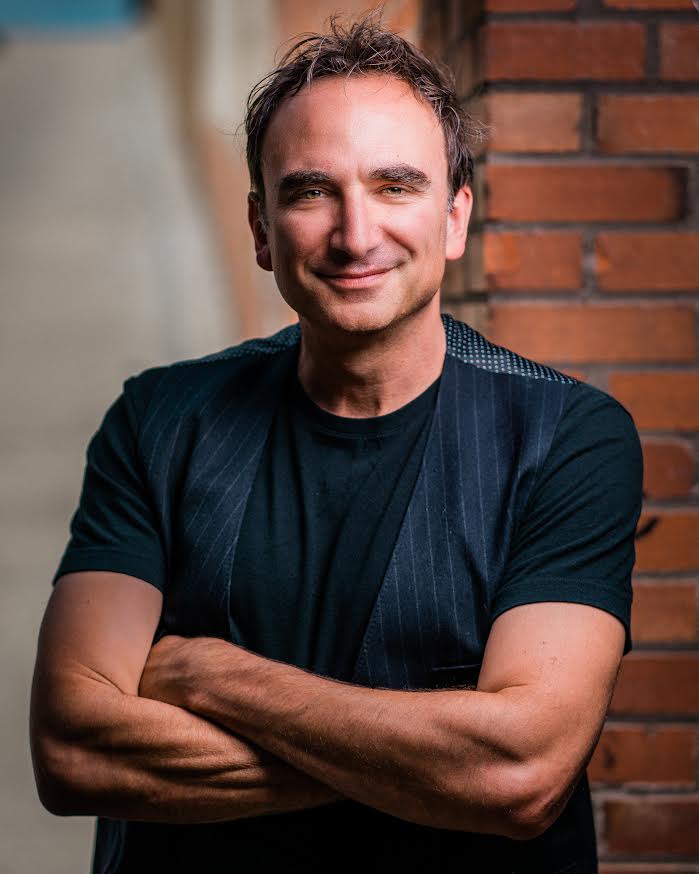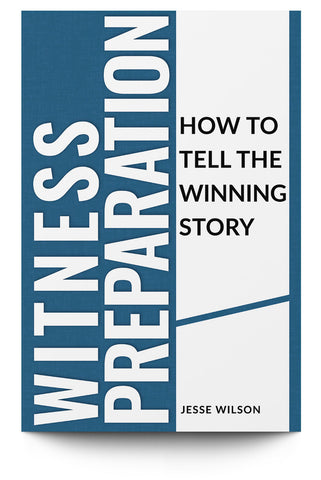This month we had the opportunity to sit down with Jesse Wilson, author of Trial Guides’ newest title, Witness Preparation: How To Tell the Winning Story.
Jesse imbues his clients and readers with the confidence to see themselves as the directors of a compelling story: one in which their injured client is not the victim, but the victor. His proven trial strategies can run contrary to what you may have learned in law school — which makes them all the more important to incorporate into your trial practice.
Read excerpts from his interview below:
How did you find your way to Trial Guides?
In the beginning of my career as a jury trial consultant, I was a human sponge, absorbing as much as I could from everything and anyone in the legal world. (I still am.) I read every great book I could get my hands on to help up my game, and most of the reading material came from Trial Guides. When I finally felt that I had something that was book-worthy, I connected with Tina Ricks [Trial Guides’ Managing Editor, Acquisitions], who is hands-down the single greatest editor I’ve ever worked with. She believed in the work, the message of this book, and more importantly how it could add value to legal cases. She got me to do for my readers what I try to get lawyers to do for their jurors: be clear and compelling. I feel deeply privileged to have a home at Trial Guides, and to be published alongside some of the greatest movers and shakers in the world of justice.
“When you embrace your role as the director for the winning story, you become an even better storyteller.”

What motivated you to write this book?
In my early days as a jury trial consultant, I was shocked at how many lawyers spent thousands of dollars — and precious time — telling the wrong story. It’s always the wrong story when you’re telling the story of the victim, instead of the victor. When the client takes the stand, it’s: “I can’t, I can’t, I can’t, my life is ruined, I can never, I can’t…” It’s a sob story, the victim story. And it’s a story that the jury should never have to see.
After years of professional training as an actor and communications consultant, I knew what was missing from the story. The greatest lesson from the stage from my background as an actor came from the greatest directors I ever worked with, which was to always tell or find the best way to connect to the character’s victor story — What matters to them? What are they fighting for? — and then define that person by their strength, not by their pain. What works in the theater also works in the courtroom. My mission is to help lawyers, and more importantly, their witnesses, flip the script on that ancient idea of presenting the victim as the victim.
“Joy is the hardest emotion to feel in the courtroom.”

Where do you get your information or ideas?
I’ve spent my entire life as a teacher of communication and human connection. I began my career working with students from kindergarten to college, many of whom were “at-risk” or neuroatypical, and then inmates and addicts in the Colorado prison system. In both capacities, my job was to try to make the lessons from the stage accessible to non-actors, and help them step into their authentic selves. So I’m always drawing deeper from the well of the theater.
I’m certain if I hadn’t wanted to be Marlon Brando at an early age I would have ended up being a lawyer. I have an insatiable appetite for justice! I’m always trying to learn from the best of the best in the legal arena; a great portion of my home library is Trial Guides titles I’ve fiercely studied. I try to co-teach with as many inspiring attorneys as I can in my workshops and seminars, because I selfishly want to learn and grow as much as I can from them. And there’s no substitute with actually working with an attorney on a case. There’s always something to learn, and I try to maintain being in “human sponge mode” as much as possible.
“When you connect to authentic joy, you never have to say to your jurors, ‘Imagine if this were you.’ The jurors already have.”

What do you think makes a compelling case?
Telling the right story, which means telling a human story. That means you’ve made the decision to tell the victor story of your client… which is about all of us. It doesn’t matter what the facts of your case are, if it’s a TBI, wrongful death, medical malpractice, or criminal case: if your client’s story casts them as the victor — as a person overcoming obstacles, despite was has been taken from them — you’ve awakened your jury. When the right story begins, the jury always wakes up. The victor story is about all of us.
“Your client is not their pain. Your client is the strength of trying to overcome their pain.”

You talk a lot about the power of joy in the courtroom. What’s so special about joy?
Joy is the most vulnerable emotion to evince in the courtroom. It’s also the most powerful lever to instantly connect your client to your jurors. What most jurors care about are themselves or at least a great part of themselves, and what they care about the most. Great characters are mirrors, not just of ourselves but of who and what we love. Joy reveals the damages. The fact that they're able to show some joy — a little joy, or maybe a lot of joy, despite their pain — shows you how great the pain actually is.
What’s something that you’d like every plaintiff attorney to know?
You have the greatest superpower in the world: the raw power of the victor story. There is no more powerful motivational force. It's an inspiring story, because it's a true story. It's about defining your client not by their pain, but by the strength of overcoming their pain. When you set the stage, you win the case in jury selection, simply by having a real conversation with your jurors. Connect to their joy, and trust that power. Let joy do the heavy lifting for you, your client, and most importantly, your judge and jurors.
“When the story begins, the jurors wake up.”

About Jesse:
Jesse Wilson is a Juilliard Theater graduate with over two decades of working on the stage. In 2015, he created “Tell The Winning Story,” a communication breakthrough company to empower trial lawyers to deliver high-impact presentations, as well as rapidly transform their communication and collaboration skills to effectively prepare clients and witnesses to testify.
Jesse is a father, a husband, a teacher, an author, a motivational performer, and a hiking enthusiast. Originally from Hollywood, CA, Jesse now lives in Colorado Springs.
His new book, Witness Preparation: How To Tell The Winning Story, came out in the summer of 2022.


